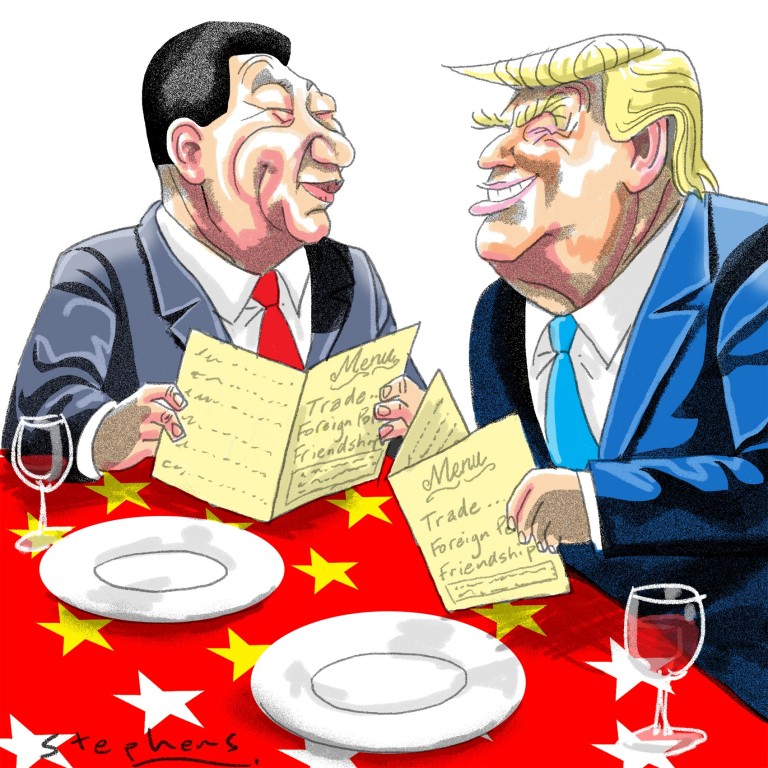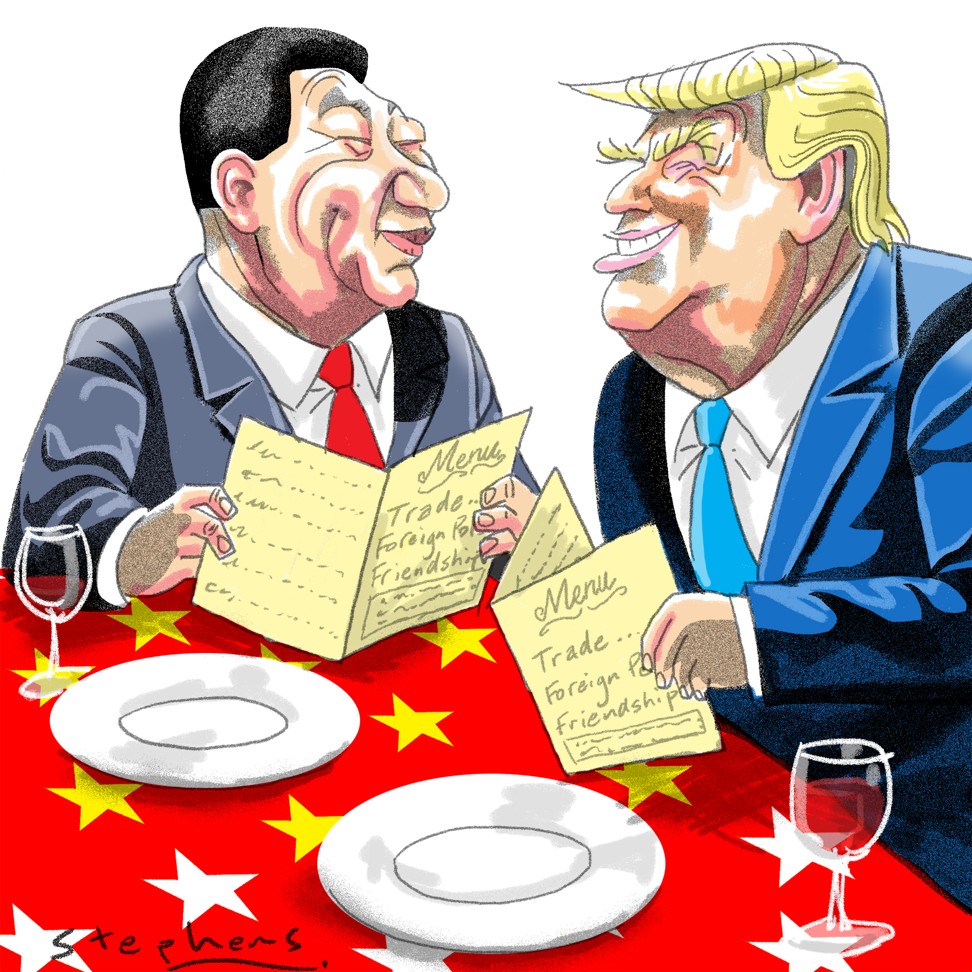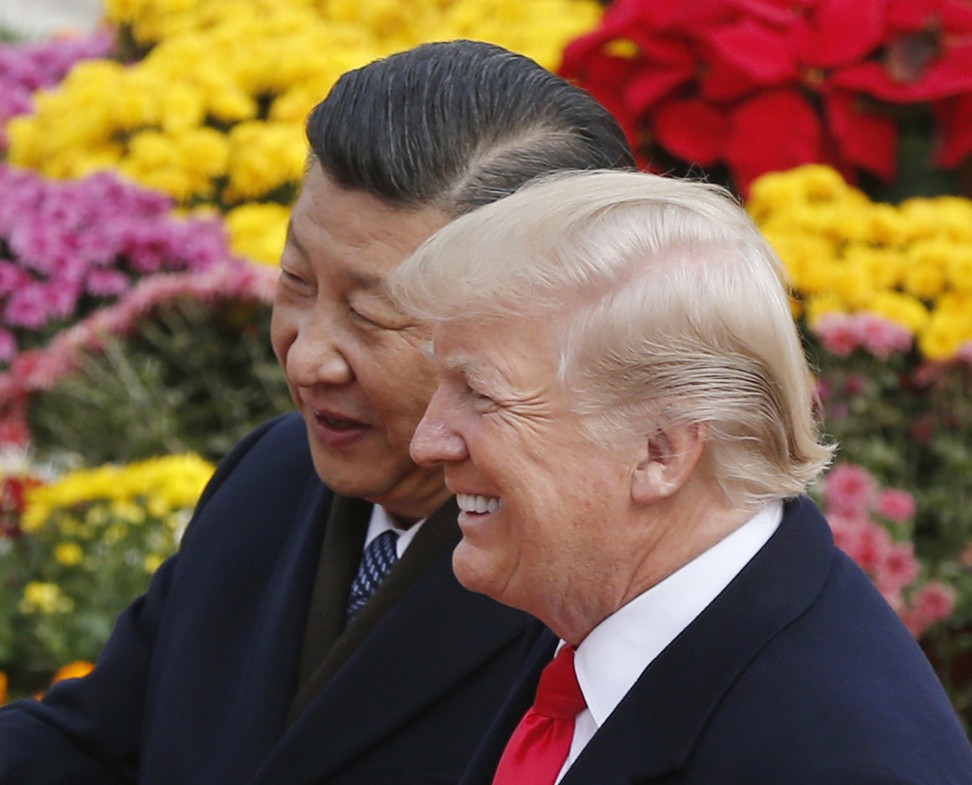
The friendship between Trump and Xi is a boon for US-China relations, whatever the US media says
Chi Wang says the US president’s embrace of Xi Jinping’s welcome in Beijing reflects a personal warmth sorely missing in bilateral ties, bringing hope for more substantive cooperation to come

CNN reporters even claimed that “staging mattered as much as the policy”, or that Trump’s embrace of the welcome simply overshadowed anything else – completely overlooking that any “overshadowing” of policy was done by the media itself.
China has not had particularly positive perceptions of most US presidents past
The warm welcome Xi gave to Trump during his time in Beijing was indicative of both leaders’ desire for cooperation and friendship after years of cooling relations. Susan Rice, the former national security adviser to Barack Obama, criticised Trump for his “embarrassing accolades”, but for all her talk, Obama accomplished very little in China during his own time in office. He certainly lacked a cooperative relationship with Xi himself. Former Mexican ambassador to China Jorge Guajardo claimed Xi was “playing Trump like a fiddle”, but then admitted to having often been poor at reading his meetings in China himself. Other China academics, such as Bonnie Glaser with the Centre for Strategic and International Studies, called it “flattery” that is unlikely to produce concrete progress for the US. Evan Medeiros, another former Asia adviser to Obama, suggested that Trump’s friendship with Xi might end up “inadvertently ceding American primacy” to China.
This is hyperbolic. It completely ignores the context of previous positive US-China relationships. Even Dennis Wilder, formerly the CIA’s deputy assistant director for East Asia and the Pacific, acknowledged that establishing personal ties “has been important in US-China relations ever since Mao [Zedong] and [Richard] Nixon”. And we know Nixon’s success in China was not simple lip service. Personal diplomacy works.
Watch: What Beijing residents think of Trump
If American and Chinese youth believe in closer Sino-US ties under Trump, it’s time the experts did as well
There was no attempt by the Chinese to undercut Trump’s own position as a foreign leader any more than Trump attempted to do so to Xi. He even praised Xi for looking out for China’s interests, as any leader would. US-China relations have rarely looked so hopeful.
Despite the media hysterics of Xi’s warm reception of Trump, a gracious guest thanking his welcoming host is hardly a cause for alarm. The opposite should be true instead.
We know Nixon’s success in China was not simple lip service. Personal diplomacy works
Further, Secretary of State Rex Tillerson confirmed that Trump had pressed Xi on trade, and more negotiations took place behind closed doors – not glamorous enough, apparently, for the media to discuss. In those meetings, China agreed to ease ownership limits on foreign joint ventures in finance, among other trade reforms. Discussions like these aren’t just rhetoric on friendly cooperation.
As a Chinese-American citizen, I am proud to see both China and the US growing strong. After the second world war, the US rebuilt its economy and emerged as the leading global and economic power that it is today. Despite lacking the support of any sort of Marshall Plan in Asia, China made great efforts to build up its own strength as well, just as the US did. And unlike the US, which has never seen war with another country on its own soil, China was invaded by foreign countries but still found its way back onto its own feet. Resilient, it continues to grow, and every year it is a step closer to global leadership.
It’s true that there is still a way to go. I do not know that any Chinese-Americans have officially served on the National Security Council to advise the president on China policy. I have been involved with the council in unofficial capacities; former US ambassador John Holdridge always called on my opinion on China policy during the Nixon administration, as did senior council member Michel Oksenberg during his time serving under Carter. They understood how important it was to hear from a Chinese-American voice and to hear different views when formulating policy; and from my own involvement, I’ve also seen how it makes a difference. I hope that we will hear more Asian-American voices on the National Security Council.
The Trump White House needs capable China hands to guide its US foreign policy
Time for the US and China to get on the same page on North Korea’s political future
In an era of uncertainty on the Korean peninsula, in expanding global cooperation on issues of trade and development, the friendship between our two countries is a crucial one. With the personal touch of diplomacy between Xi and Trump, this is looking more likely and hopeful than it has under any other US president in recent years. American media and former Obama hands are quick to jump on both Trump and Xi for a friendly state visit, out of personal distaste for both or either of them. However, rather than unnecessary flattery, Trump’s visit to China set the tone of a changing, more cooperative relationship that has the potential to be beneficial to China and the US alike.
Chi Wang, a former head of the Chinese section of the US Library of Congress, is president of the US-China Policy Foundation


